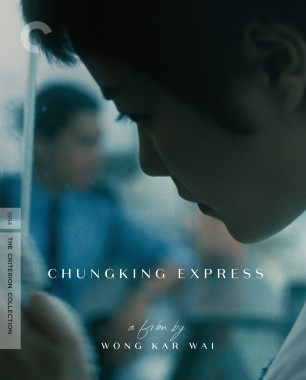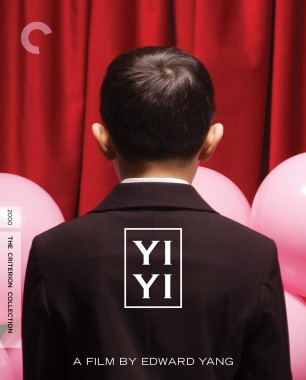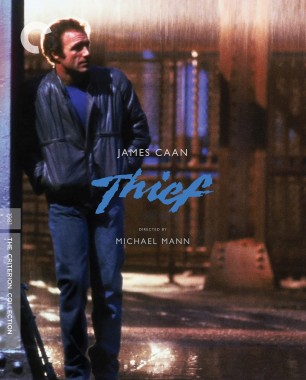
Olivier Assayas’s Top10
French filmmaker Olivier Assayas has directed fifteen features, including Cold Water, Irma Vep, Demonlover, Summer Hours, Carlos, and Clouds of Sils Maria.
Photo by Grant Delin
-
1
Luchino Visconti
The Leopard
One of the greatest films ever made by a director who, almost forty years after his death, is still an intimidating and disturbing figure in the history of cinema. Visconti’s films stand outside the borders of the medium, by their ambition, by their scope, uniting past and present, individuals and history, both deeply human and transcendent. The Leopard, his most translucent, towering achievement, embodies everything the best filmmaking can be, grand, profound, entertaining, physical and metaphysical, sharp as a blade and melodramatic. It stays with you, forever.
-
2 (tie)
-
Andrei Tarkovsky
Andrei Rublev
I wouldn’t be here writing these lines but for Robert Bresson; when I was still a teenager, his films showed me what cinema could be, showed me how cinema could rival the masterpieces of the other arts. He showed me cinema was something worth devoting one’s life to.
Ingmar Bergman once said that Tarkovsky moved effortlessly in areas most filmmakers struggled all their life to reach. I don’t think I’d be able to put it better than him.
-
3 (tie)
-
Edward Yang
Yi Yi
Often, when I read filmmakers’ lists (including mine), I am frustrated by the absence of their contemporaries. The present is always the hardest to read, and no one will argue if you focus on masters of the past instead. But here are a few names, filmmakers whose work I have been lucky to follow since their beginnings; we’ve crossed paths, more or less frequently, but I have admired them constantly, also because they have been an inspiration. I feel I have had a dialogue with them, or with their films, and it is reflected in my own work. Edward Yang is gone, I miss him a lot, he invented modern Chinese cinema alongside Hou Hsiao-hsien, he was my friend.
-
4
Robert Altman
Nashville
Between 1971 and 1975, Robert Altman could do no wrong, and Nashville is the culmination of that streak. There had rarely been before him in Hollywood such a sense of liberty, of independence, of genuine spontaneity. The long takes, the tracking shots, the space he gives actors, the way he lets them overlap, the looseness and the depth of the narratives—it was a breath of fresh air in a usually stuffy and hostile environment. It didn’t last long, though.
-
5
Michael Cimino
Heaven’s Gate
I saw this one again a few weeks ago in its incredible restored director’s cut. I have always admired Michael Cimino, and I loved Heaven’s Gate when it was released—with some quibbles. Now, I can’t believe I could have had any quibble about this masterpiece. It’s not just that it ages well; it wipes away any doubt: for some reason the passing of time (remember the only genuinely moving tagline ever? What one loves in life are things that fade.) reveals this film as the extraordinary, transcendent triumph I could not see then. And the way it finally reaches us through the echo of time only makes it more moving, heartbreaking, even.
-
6
David Cronenberg
Videodrome
Cronenberg is a genius. He reinvented genre filmmaking, giving it the depth of the most ambitious fiction. This truly visionary work must be one of his masterpieces. When it was released, I couldn’t believe my eyes. I couldn’t believe a filmmaker could have not just captured the very soul of our present, or its hidden meaning, but also found its poetry, the mysterious beauty of it. eXistenZ, shot fifteen years later in a very different world, echoes it in fascinating ways. I consider David Cronenberg to be one of the great modern artists.
-
7
Steven Soderbergh
Che
Steven Soderbergh totally rocks. He is the bravest, smartest, most original filmmaker in the U.S. today. I don’t like all his films, but I not only like but admire most of them; and even in his minor work there is still more genuine love and understanding of cinema than in the most accomplished works of some others. Che, the one movie ever made that seriously deals with military strategy, helped me imagine Carlos on a scale that otherwise would have intimidated me.
-
8 (tie)
-
Jean-Pierre Melville
Army of Shadows
I’ve never been very fond of Fellini—too baroque for me. But La dolce vita is an amazing film, summing up an era, a culture, a city; in its own way it is of historical importance. Maybe it is the great Italian film of that period, in the same way that The Mother and the Whore, by Jean Eustache, is the ultimate nouvelle vague film made ten years later, by someone who had been a marginal figure of the movement, and embodying a city, a time, a culture now all gone.
My admiration for Jean-Pierre Melville has only been growing through the years. He is a minimalist, like Bresson, but not so much in the sense of emptying the frame—it’s more about getting rid of a lot of the visible to replace it with the invisible. I haven’t been filming a lot of gangsters, but I can understand his fascination for both outlaws and cops, for their world haunted by betrayal and death. In Army of Shadows, he adapts a semi-autobiographical novel by Joseph Kessel and makes the ultimate film of the French Resistance. Both Kessel and Melville had been involved with the Free French, and here cinema meets history. A great artist carried by historical circumstances transcends not just his own inspiration but the medium. Army of Shadows is not only one of the most important French films, it is also a national treasure.
-
Mike Leigh
Topsy-Turvy
The television cut of Fanny and Alexander, of course, which is the one and only version Bergman approved of. It is called the television version because that’s how it was financed, but this is meant to be seen on a big screen with one intermission. It is Bergman’s final masterpiece. Well, not exactly, as he kept on making great films for years afterward. But in the master plan, this is the last actual film, the closing of his main body of work—others are supposed to be footnotes (they’re not). Initially, this film was overlooked because, in the shortened so-called theatrical version, it lost some of the richness of its texture. It was only gradually, when it was revisited in its full version, that it imposed itself, at least on me, as the key to his whole body of work.
I had to fit Topsy-Turvy into this list. It is also a period piece. This misunderstood, underrated biography of Gilbert and Sullivan must be one of the most touching, funniest—and cruelest—depictions of show business, split between art and commerce. We see both the torments of creation and the anxieties of the box office. To me, it compares only with Jean Renoir’s French Cancan.
-
10 (tie)
-
Georges Franju
Judex
I can’t believe how the genius of Sacha Guitry is misunderstood outside the borders of France. He is actually one of the most important figures in the history of French cinema, on a par with the greatest. I suspect he has this marginal status because when he started making films—the minute you could record sound—he was already a middle-aged ultra-recognized, ultra-successful figure of the stage. His style owes nothing to the silent era; he is the first French filmmaker, in a long line, who relies on language. But he was of course never content to simply record his own plays; he was obsessed with using the specificities of cinema to transcend them, and in doing so he pioneered a whole new language. Inspired by his wives—first Jacqueline Delubac, then Geneviève Guitry, then Lana Marconi, who most often had the lead—Guitry was the first French writer/director, and possibly the greatest.
Désiré is a remarkable film. I wish Criterion would release Le comédien, a portrait of his father, the famous actor Lucien Guitry, and my personal favorite.
Another misunderstood French director is Georges Franju, who’s mostly known for Eyes Without a Face but actually the author of a very consistent body of work, including Judex, a quietly disturbing poetic adaptation of Louis Feuillade’s serial.
-
11 (tie)
-
Michael Mann
Thief
Rififi is a strange animal, based on a novel by a typically French crime writer, Auguste Le Breton, and shot in Paris as the first foreign-language film by a great American filmmaker at the height of his powers, whose career had been broken by McCarthyism. Jules Dassin’s previous film, made in London five years earlier, Night and the City, is his masterpiece. This inspired hybrid of French and American noir—which I discovered as a child on French TV—has constantly impressed me with its violence, its despair, its darkness, and its beauty. It has also been hugely influential, not only on Melville—so much of his work derives from Rififi—but also on a lot of minor figures of French genre. Dassin reinvented the whole syntax, and the after-effects have been felt for a long time.
I am a fan of Michael Mann; he is one of the most inspired stylists in American cinema today, but it was all there from the start. In Thief, his first feature, you have echoes of Melville (it goes full circle), a sharp eye for realism, but also profound human characters with precisely drawn relationships, and great acting. Mann’s fascination with a geometrical modernity, even if it is always mediated by genre filmmaking, is genuinely reminiscent of Antonioni—explicitly so in the last scenes of Heat.


























